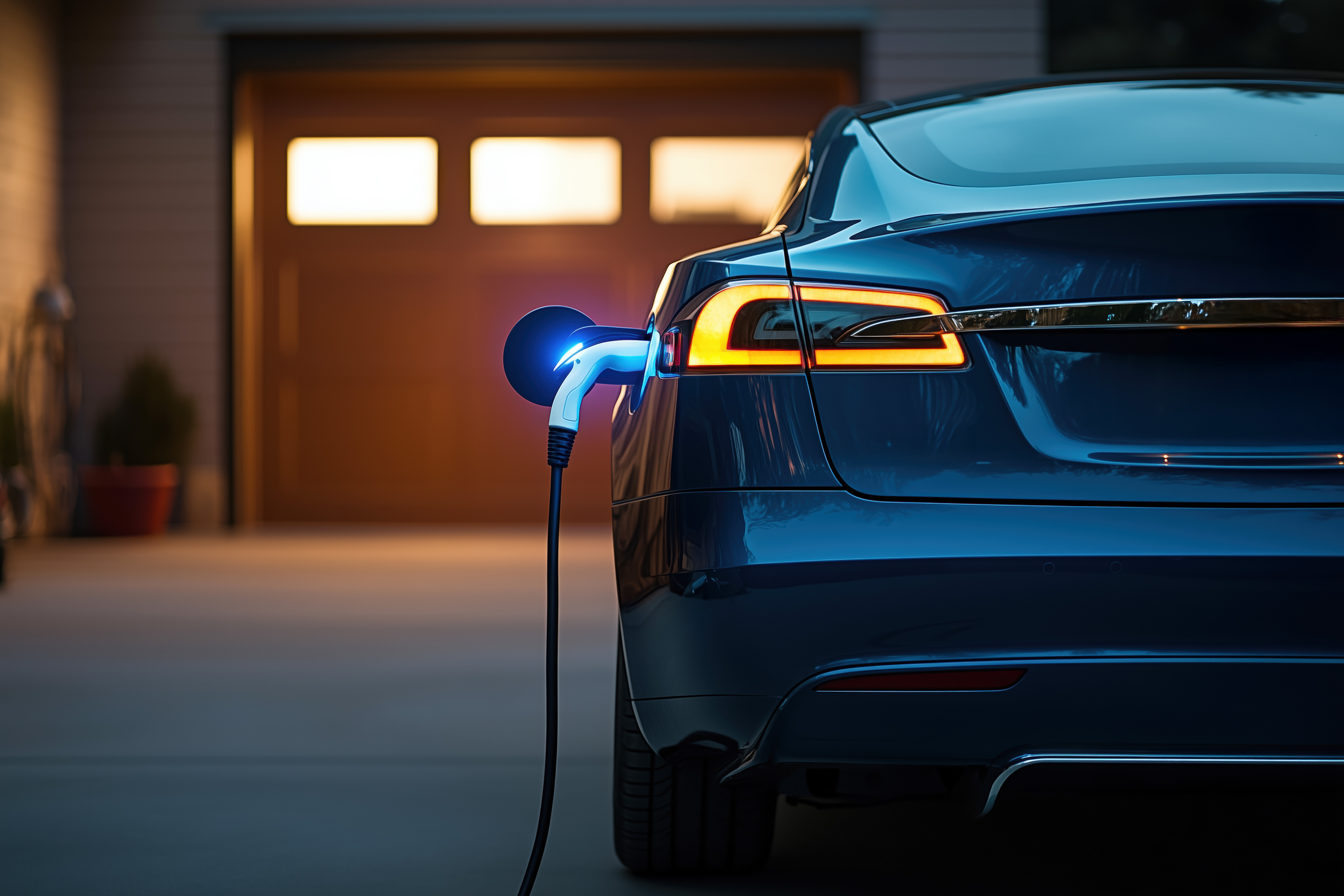As electric cars become more affordable, many drivers are considering switching from their traditional gas-powered vehicles. But if you’ve never owned an electric vehicle (EV) before, understanding the benefits of electric cars vs. gas cars can be challenging.
Most people know that EVs can be better for the environment, but are they cheaper to own and maintain? How do you decide if an electric vehicle is right for you and your lifestyle?
In this article, we’ll answer those questions and examine the many benefits of electric cars for your day-to-day life, your wallet, and the environment.
{{CTA-EV-to-Solar}}
Electric Cars vs. Gas Cars: Pros and Cons
It’s well-known that EVs could be beneficial for the environment, but they also have many financial and personal benefits as well. These are just some of the benefits electric vehicle drivers can enjoy.
Decreased Fuel Costs
Gas prices fluctuate constantly, but the cost to charge an electric car is cheaper. That means an EV costs much less to charge, regardless of location or electricity provider. The average electric car owner with an at-home charger can expect to save up to $1,000 a year on fuel costs compared to gas car drivers—and potentially even more with an EV electricity plan from Gexa.
While the time to charge an EV does take longer than a standard gas fill-up, installing an electric charging station at your home allows you to easily charge your vehicle overnight.
Lower Electric Car Maintenance Costs vs. Gas
Electric cars have fewer moving parts than gas cars, so they require less maintenance and fewer repairs. These lower lifetime costs can quickly offset the higher purchase price. In fact, EV drivers save on average anywhere from $6,000 to $10,000 over the life of their vehicles compared to gas cars.
Reduced Emissions
Comparing an electric car vs. gas carbon footprint, the EV clearly wins out. All-electric vehicles have zero emissions, which is better for the environment and results in cleaner air in your area. Plug-in hybrid cars also have zero emissions when running on electric power, but hybrids also run on gas, so they do have some emissions, although fewer than a fully gas-powered vehicle.
Higher Energy Efficiency
EVs make better use of energy than gas cars. The battery of a fully electric vehicle converts more than 77% of energy into the vehicle’s movement. For comparison, gas-powered cars only convert 12% to 30% of their energy into movement.
Each electric car model holds a charge for a different amount of time, depending on the battery size and age. Learn all about how long an EV battery will last.
Incentives & Rebates
While electric cars do have a higher initial purchase price, there are a variety of rebates and incentives available through the federal government, as well as state governments and utility providers. You can even stack multiple incentives, getting a significant portion of your cash back on your EV purchase.
Charge with Solar
If you have solar panels installed on your home, you can use them to charge your electric vehicle. You can enjoy discounted electricity bills and the convenience of charging your EV at home.
The benefits of owning an electric vehicle are numerous, both financially and environmentally. When comparing an electric vs. gas car environmental impact, an EV has a much smaller carbon footprint, allowing drivers to live a greener lifestyle.
When deciding whether to invest in an EV, consider installing a charging station at your home and take time to research any state and local tax incentives that can help defray the costs of purchasing the vehicle.
More Differences Between Gas vs. Electric Cars
Are you wondering just how different EVs, and traditional gas-powered vehicles are? Here’s a breakdown:
Electric cars are either fully or partially powered by electricity. Partially electric vehicles are more commonly known as hybrids. Gas vehicles, however, rely fully on gasoline.
EVs and gas cars may look similar on the outside, but their components are very different. A gas vehicle has dozens more moving parts than an electric vehicle, including an internal combustion engine, which powers the car. Electric cars are powered by an electric motor. Learn all about electric cars and how they work.
Electric Car vs. Gas Cost
One of the biggest differences between the two types of vehicles is the average cost of electric cars vs. gas cars. When comparing an electric car vs. gas car, it’s important to consider the upfront costs of EVs, such as the higher purchase price and the potential costs of installing a charging station at your home.
If you choose to purchase an electric car, you will likely want to consider installing an at-home charging station. While gas stations are on almost every corner across the country, electric vehicle charging stations are less common. For that reason, many EV owners choose to install their own charging stations, so they can conveniently charge their vehicles at home when they’re not in use.
Fortunately, the initial cost continues to decrease as EVs become more common. Additionally, some electric cars qualify for the federal electric vehicle tax credit, as well as state and utility incentives, which can help offset the initial purchase price. Not all electric cars or models qualify, so be sure to check whether your vehicle is eligible before purchasing.
Gexa Energy provides (Texas) homeowners with 100% renewable plans from environmentally friendly renewable sources. Join us in building a cleaner, more reliable future for Texas.






































